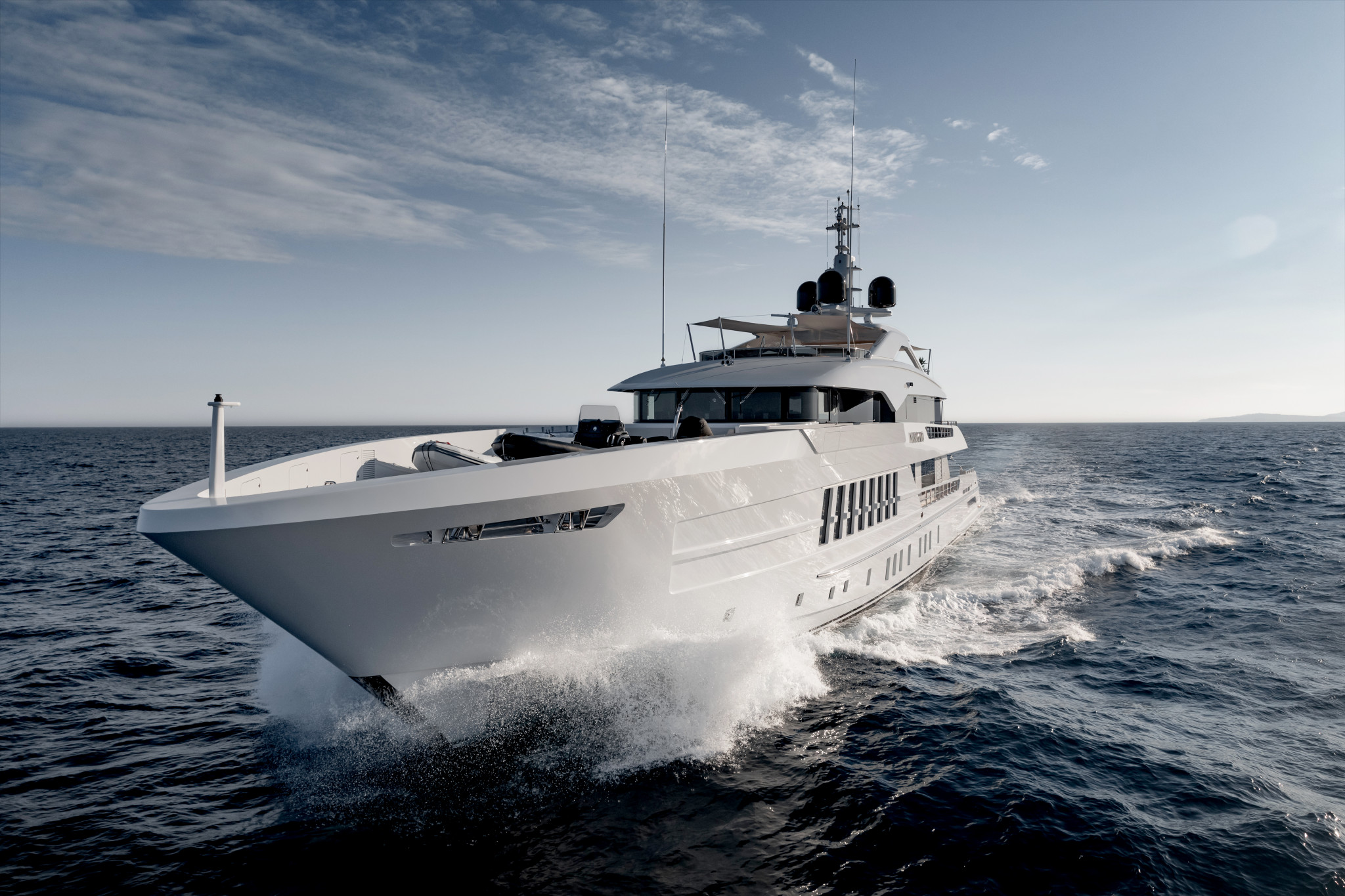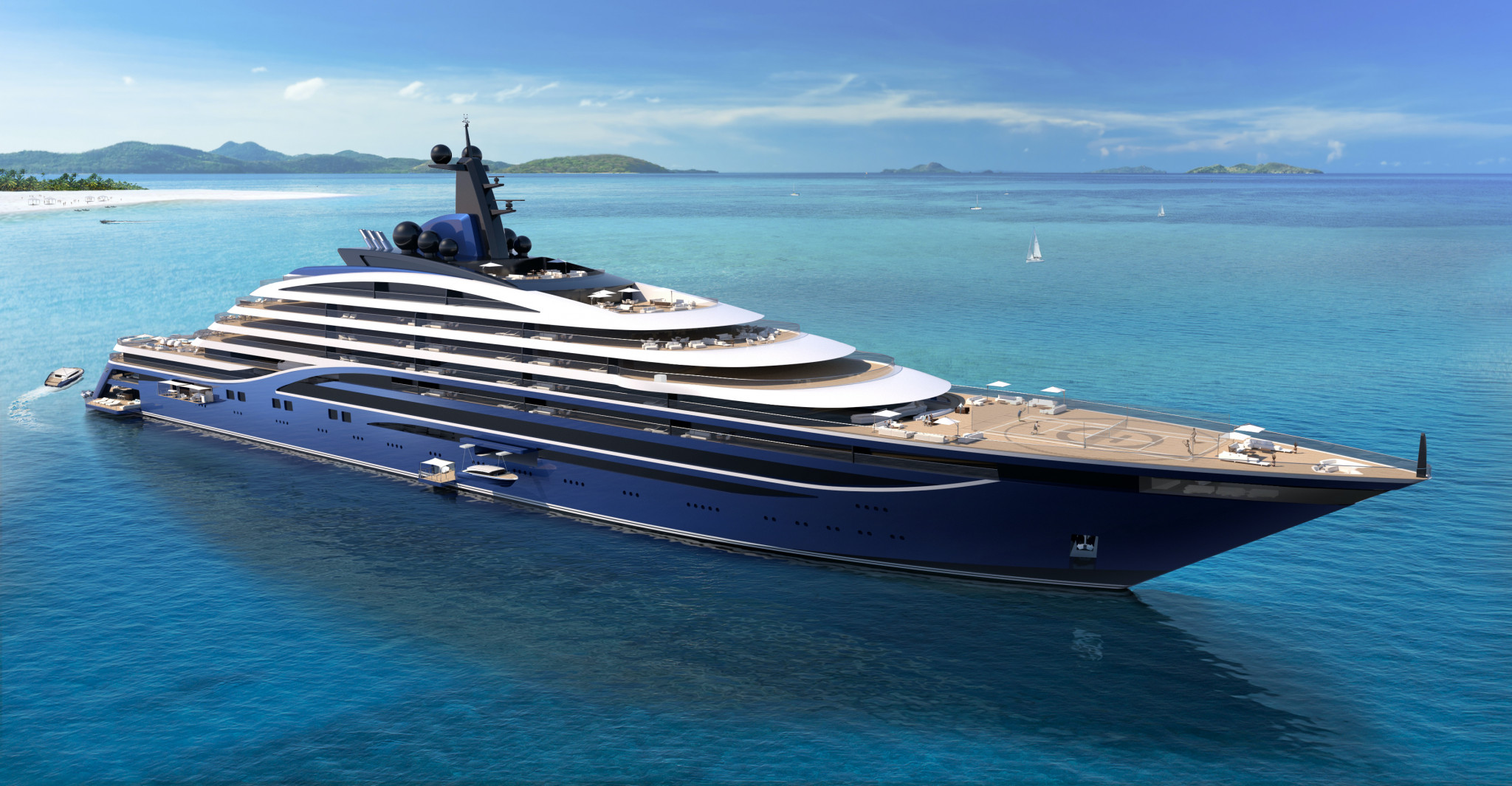
Sailing the ocean blue is about to go green as superyacht companies place the spotlight on sustainability through innovation
Words by Alice Cairns
In a world that’s increasingly alert to the climate crisis, it was only a matter of time before the yachting industry got on board. With its uniquely affluent clientele and its roster of expert builders and engineers, the yacht business – so synonymous with out-of-this-world luxury – is perfectly positioned to make a real-world difference.
“Sustainability is a huge discussion point at the moment” says Andy Lawrence, director of design at Mayfair-based Princess Yachts. “I don’t think we started soon enough: the industry as a whole is some years behind the automotive industry, and we lack governmental targets and deadlines to work towards. At the same time, the marine sector is currently in the process of catching up, and is constantly experimenting with new technologies.”
These technologies include the likes of hybrid engines, which combine diesel and electric propulsion to reduce fuel consumption and to create greener, quieter vessels.
“Five years ago, Heesen was one of the first shipyards to build a yacht with a hybrid propulsion system,” says Mark Cavendish, sales director at Heesen. “We built it on spec, but it sold, which goes to show that there’s plenty of interest there from clients. We’ve also created Fast Displacement Hull Forms (FDHF) which offer less resistance and therefore save energy.”

These developments are particularly impressive when you consider the unique challenges faced by the yachting industry when it comes to implementing eco-friendly technologies. Range is essential when engine failure could leave a client stranded in the middle of the ocean, while the demand for luxurious add-ons from helipads to submarines mean that superyachts are likely to weigh heavy.
“I would say that we’re only at the thin edge of the wedge at the moment” says Mark. “Hybrid engines do lead to lower fuel burning, but they still involve a diesel engine driving a propeller. The obvious solution is batteries, but the problem there is weight. Electric car manufacturers still struggle to create cars with a respectable range, so just think how much harder it is with a big, heavy object like a motor yacht.”
Christopher Head, sales director at Sunseeker Yachts agrees: “Remember, electric cars can be plugged in at home – but you can’t always charge your boat in the middle of an ocean, or on an island! Regardless of these challenges, I firmly believe that the technology is coming – it’s just a matter of time.”
“I firmly believe that the technology is coming – it’s just a matter of time.” Christopher Head
And while we wait for the industry to finesse its green technologies, there are plenty of ways to make a difference in the here and now. Across the yachting industry, there’s a clear move towards greener practices: take the Yacht Environmental Transparency Index (YETI), an industry-led project which ranks superyachts according to their environmental credentials. Carbon offsetting remains a popular way to alleviate the impact of travel, while most shipbuilders are now looking for new ways to protect the environment at every stage of the manufacturing process.
“I think that rather than searching for one perfect answer, the best solution right now is to make multiple small changes” says Andy. “At Princess Yachts, for example, we’re working on improving our sustainably-sourced interior design offerings. We’re also looking at the antifoul we put on the boat, because that does eventually degrade and fall into the sea, and we’re trialling props and rudders that reduce drag, therefore burning less fuel in order to move at the same speed.”

Innovative new projects are also putting marine research front and centre. Somnio, the largest yacht in the world, is set to launch in 2024. With 39 apartments, a 10,000-bottle capacity wine cellar and an onboard beach club, Somnio sounds like the last word in luxury – but it was also built with the environment in mind.
“Looking after the environment and operating sustainability are big focuses for Somnio,” says co-founder Erik Bredhe. “We will be working with experts to ensure that we can help marine teams, scientists and other specialists with important research around the world. Via Somnio Global, a prominent research and development center in Michigan, USA, the Somnio yacht will be used as a test platform for innovative new Green technology.”
One thing’s for sure – the world of yachts is only going to get greener. “The industry as a whole did well over the pandemic, because yachts offer people privacy and freedom” says Christopher. “With that influx of buyers and owners, the demand for green technologies has only increased. The demand is there, the expertise is there, and a sustainable future is coming.”






